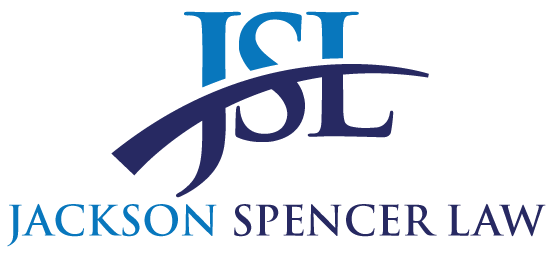If you’re suddenly unemployed, the first thing you may think about is filing for unemployment benefits. The last thing you think about is having your benefits denied because you got a severance payment when you left your job. Does severance pay affect unemployment, and if so, can you get your benefits restored? Jackson Spencer Law is here to answer this important question.
Click to skip ahead:
How is Severance Pay Defined in Texas?
The legal definition of severance pay under the Texas Labor Code is actually narrower than what many employers refer to as severance pay, which often includes any compensation that your employer gives you when your employment ends, beyond what you’re owed in remaining paychecks or unused time off that your company may pay out.
The Texas Workforce Commission (TWC) must know about any “severance pay” you received when you left your last job, and you must tell them how long the payment will last. Severance pay might be a lump sum, or it might be paid in installments.
If you are Laid Off Can You Get Employment?
Some payments are not considered severance pay, even if you receive them at the time of your termination. These payments often include:
- Payments as a result of a settlement agreement usually for an employee agreeing to release or forego asserting certain claims against their former employer
- Payments based on a civil rights violation claim
- Claims based on other violations of the employer/employee relationship
- Payments guaranteed in a written contract or collective bargaining agreement negotiated before your date of separation
You should not be denied unemployment benefits for these kinds of payments. If you have been, you should consult an employment law attorney immediately.
If you did get “severance pay” (either instead of formal notice of layoff or in addition to formal notice), you may be entitled to collect unemployment benefits. Under Texas law, workers are entitled to benefits if they are laid off due to lack of work or fired for reasons other than misconduct.
If the business has no more work available, or your position was eliminated, then you may be considered “laid off” as of the date of the severance pay, even if you had no notice.
If you received notice of a lay off, you can generally apply for unemployment benefits once the time period covered by the wages expires. For instance, if you received two weeks’ pay as notice, you should be able apply for benefits at the end of two weeks.
When Do I Report My Severance Pay?
Severance pay is considered an “earning,” even if you haven’t received it yet. The TWC wants to know all your income when you request unemployment benefits. They need to know your total hours worked (if any), earnings before deductions from all work, self-employment or 1099 pay, vacation pay, and commissions.
They need these figures because unemployment pay is intended to supplement your pay when you’re not earning any kind of money from a job. This means that your earnings are deducted from your benefits, and there are no exceptions. If you fail to report severance pay (or any other kind of pay), you could be disqualified from collecting future benefits, and you might even be required to pay back what you received at a shocking rate of interest (15% or more).
If you have questions about how and when to report your severance pay, bring your “Ongoing Eligibility Requirements” package to an employment law attorney. They can help you fill in the blanks with the right information.
How Do I Get Legal Assistance with My Severance Pay?
If you were terminated or laid off from your job, and received a severance package, and need to know whether you can file for unemployment, or if you have other questions about your severance pay, contact Jackson Spencer Law. They’re experienced in severance negotiation and unemployment benefits and, depending on your situation, may be able to give legal advice in both areas of Texas law.



